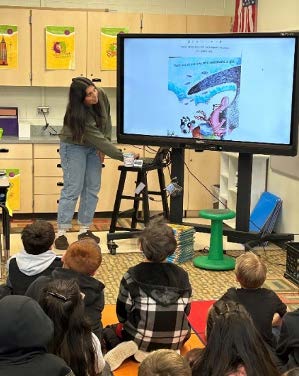History
"BrainWise has given me a gift. My students' behaviors have significantly changed. They now have tools to problem solve and are capable of using critical thinking skills."
In her professional career, Dr. Barry—who received her Ph.D. in sociology and has undergraduate degrees in sociology and nursing—has worked as a public health, school, migrant and adolescent and adult psychiatric nurse. She has counseled teen mothers, battered women, parents, victims of physical and sexual abuse, youth with sexually transmitted diseases, truants, drop-outs, substance abusers, suicidal youth, families of suicide victims, and the mentally disabled.
This professional background helped her recognize that many people with whom she worked reacted emotionally and impulsively to problems because they had never learned any differently. It was the way everyone around them responded, and was why generation after generation she encountered had the same difficult histories.
When research on cognitive behaviors and advances in neuroscience showed that thinking responses are learned behaviors, she realized that the poor choices individuals made were often the only reaction they knew. They depended on their survival instincts, because no one had taught them skills to stop and think, and Dr. Barry realized a different approach was needed.
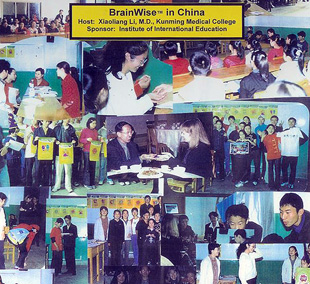
In 1995, Dr. Barry established the BrainWise Program and began work on developing the BrainWise curricula. Her approach was to use BrainWise to teach about the brain and to show how learning and using the 10 Wise Ways replaces Lizard Brain reactions with first responses based on thinking.
These critical thinking skills, also called executive functions, are learned behaviors that underlie making good choices and responsible decisions. Children, teens, and adults who use Wizard Brain thinking have fewer problems.
Dr. Barry and several instructors then piloted the BrainWise program with at-risk youth in Denver middle and high schools. She served as the lead teacher, experiencing first-hand the challenges facing teachers, counselors and students. This direct contact, as well as feedback from teachers, counselors, and health providers, shaped the program and underlies the curricula’s instructor -friendly and student-receptive approach.
By design, the material is centered around a scripted curriculum so that it can also be taught by peer educators, community volunteers and parents. In addition, the BrainWise materials are affordable and reproducible, and the activities can be easily integrated into current events, literature, history, social studies, and science courses, as well as applied to situations inside and outside the classroom.
Since that beginning in 1995, the BrainWise Program, a 501 (c) (3) non-profit organization, has been involved in the continuing research, and development of curricula that teach these critical emotional, social, and cognitive skills we call the “10 Wise Ways.”
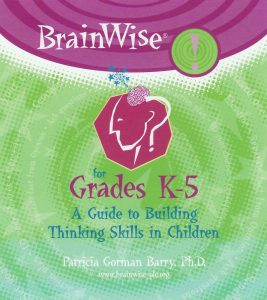
BrainWise for Grades K-5 and BrainWise for Grades 6-12 is taught in metropolitan area schools. BrainWise is founded by Dr. Patricia Gorman Barry Ph.D. as she and several instructors began to teach the BrainWise curriculum to at-risk youth in Denver middle and high schools.
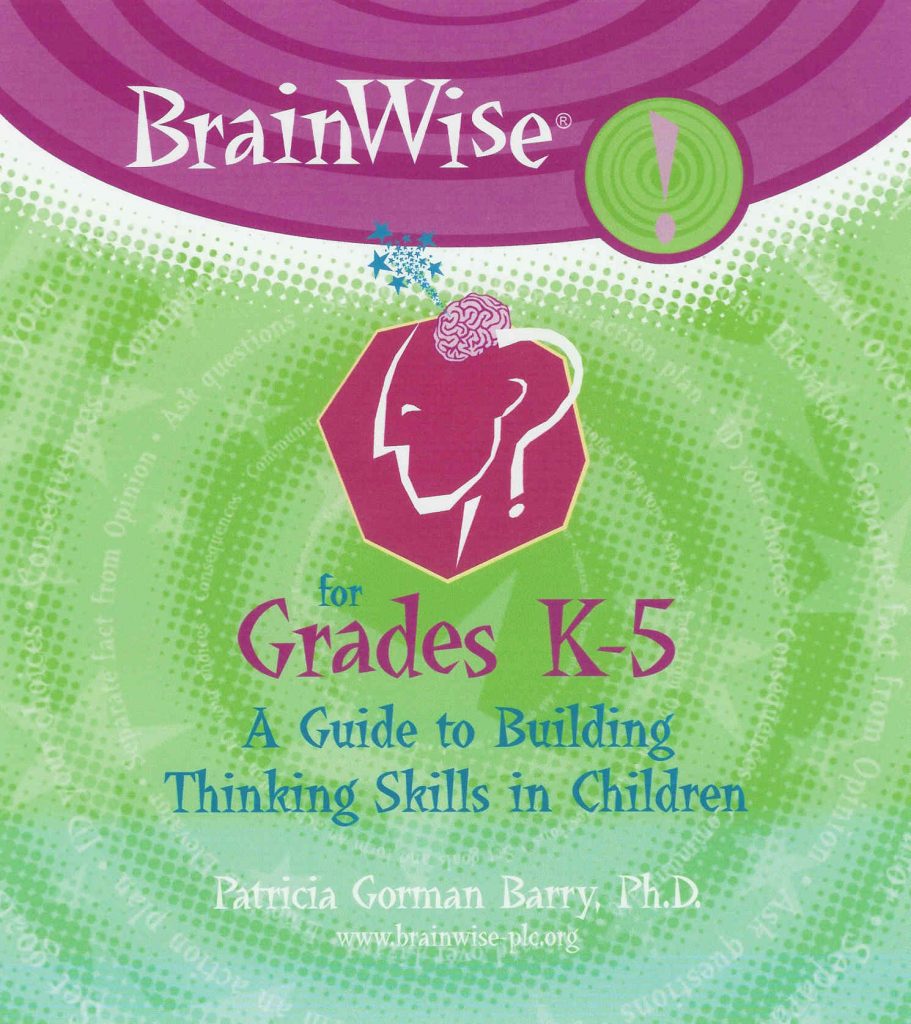
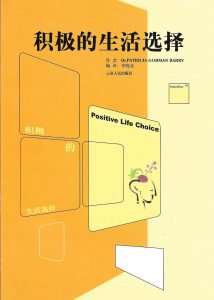
BrainWise translated into Mandarin. After a delegation of visiting Chinese professors from Kunming Medical College observed BrainWise being taught at Denver's Mi Casa Resource Center for Women and requested a copy of the curriculum and student workbook, Dr. Xiaoliang Li, a professor of public health at Kunming Medical Hospital in China, sought permission to translate the BrainWise materials into Chinese to teach the program to girls targeted by sex traffickers in Kunming.
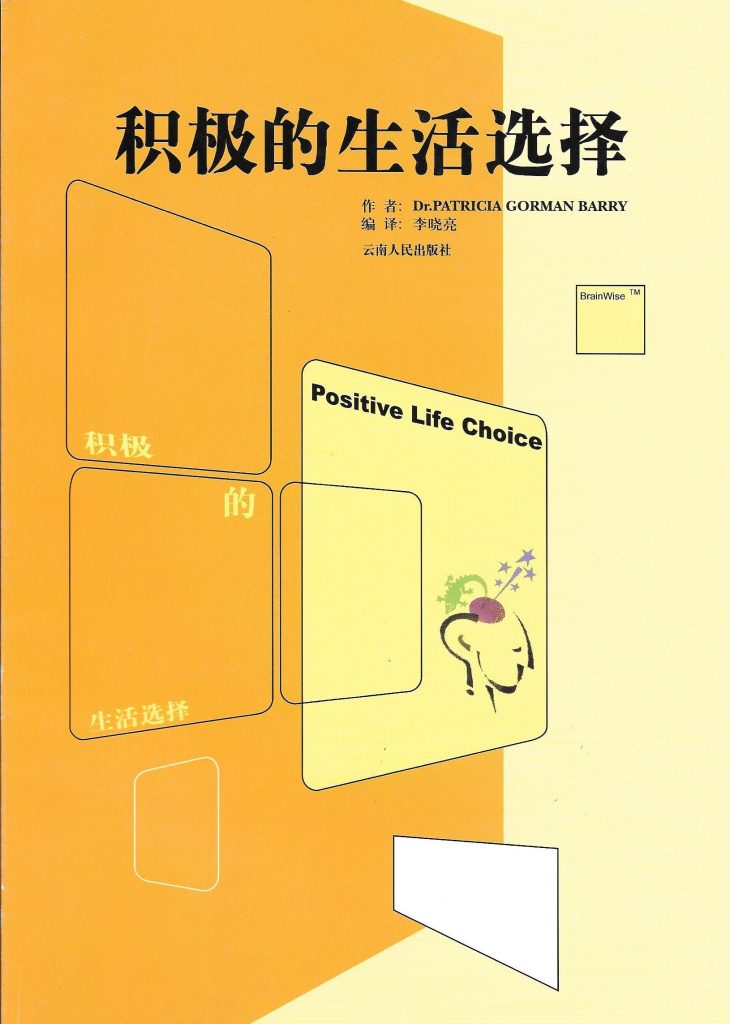
BrainWise first used in national youth ministries

BrainWise expands in China. Dr. Barry traveled to China to meet with Dr. Xiaoliang Li, who had completed her translation of the BrainWise materials. The program was designed by Dr. Li to reach at risk youth, including illiterate rural girls who are targets of sex traffickers. During the trip Dr. Barry met with numerous individuals in both Beijing and Kunming, as well as presenting several lectures and seminars on the BrainWise program. Dr. Barry trained over 400 government officials in China in the BrainWise Program and co-taught a student seminar in Kunming. Plans were laid to publish and distribute the curriculum in China through a grant from the Save the Children Foundation.
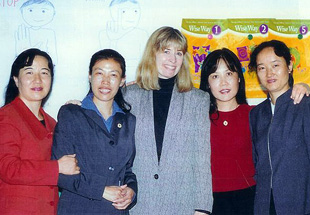
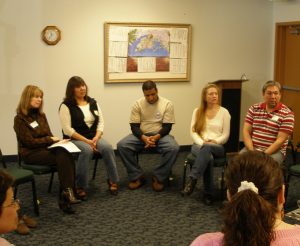
The BrainWise Program is introduced to Alaska Natives in Chugachmiut region. The Chugachmiut is a regional Native non-profit tribal consortium that provides health and community social service related programs for families of the Chugach region.
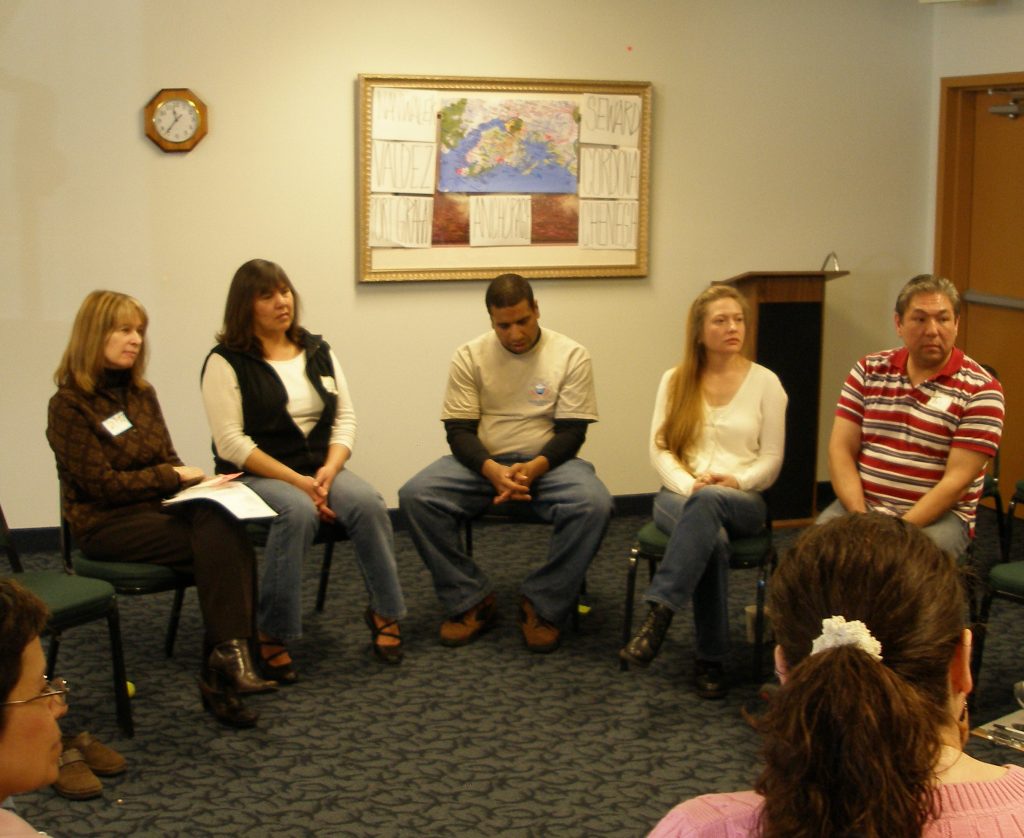
BrainWise Partners with Colorado State University Extension/Partners in Parenting to deliver BrainWise in rural and urban Colorado areas.
CCF Grant for Capacity Building The BrainWise program is awarded a $50,000 Capacity Building Grant by the Department of Health and Human Services to help expand its base and enable it to reach more programs and schools
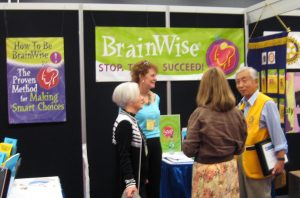
BrainWise recognized by Rotary International. Dr. Barry received a 2006-2007 North American Innovative Literacy Project Recognition for changing "the Rotary world's vision regarding the scope of school partnership projects and the standards used to measure success".
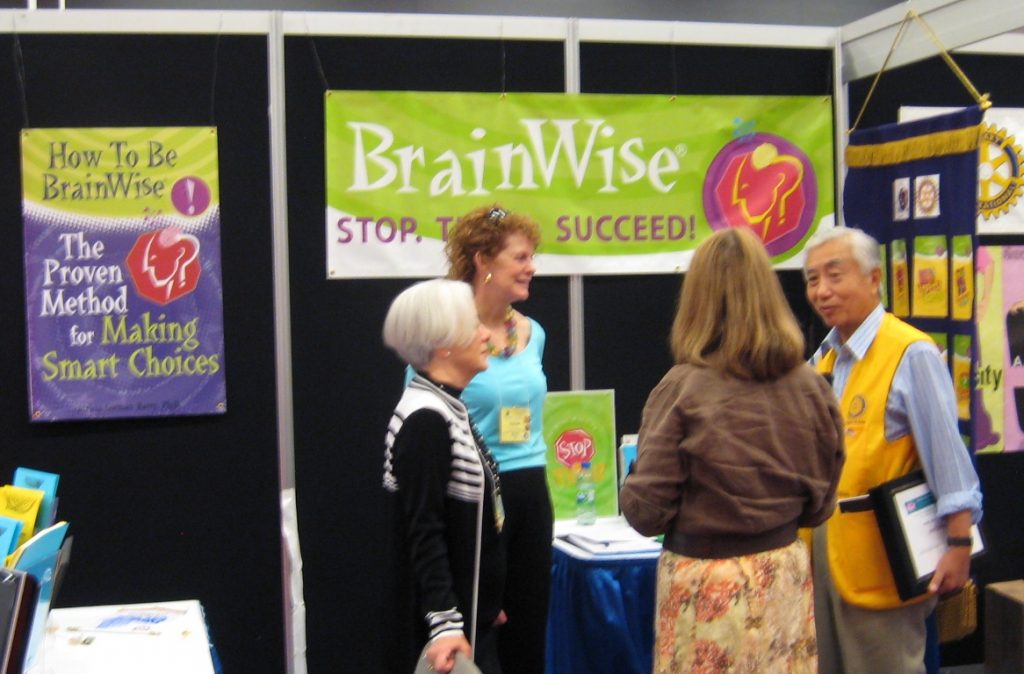
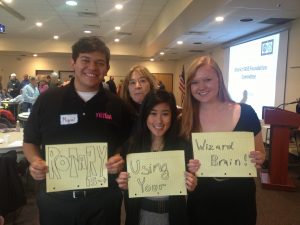
Youth leaders at Rotary Youth Leadership Awards camp are taught BrainWise.
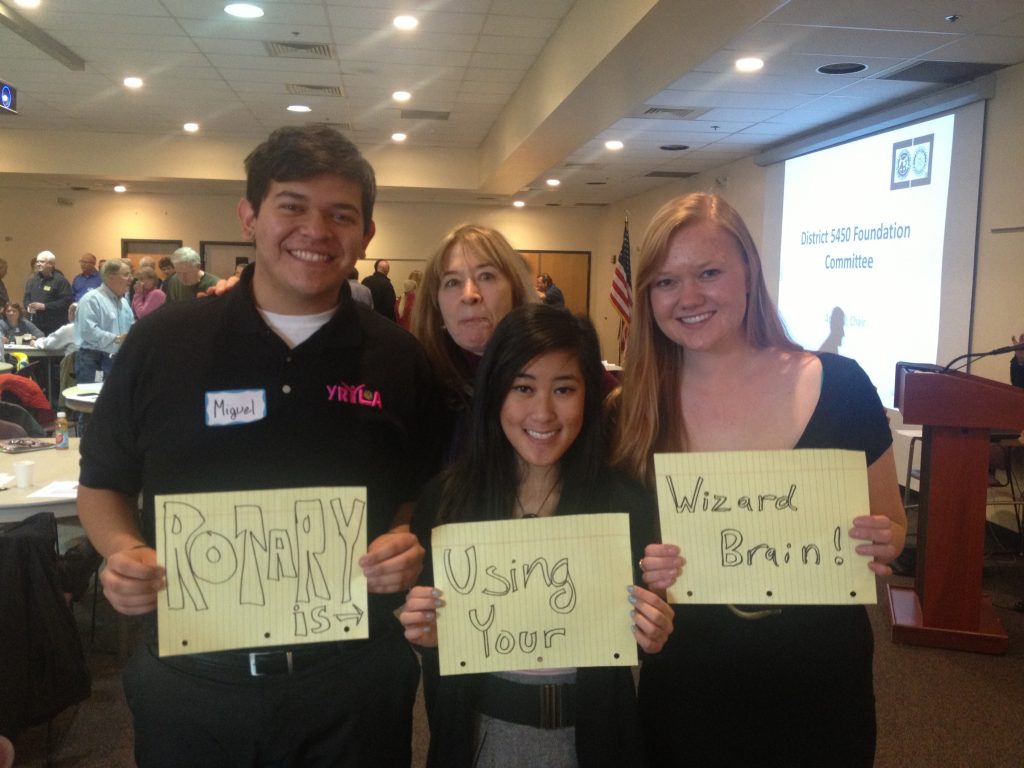
BrainWise expanded to a transitional housing setting for homeless men.
Impulse underlies behaviors that negatively impact health and well-being.
BrainWise CPR gives is a first response intervention, helping individuals stop and think so they can prevent problems from happening or keep problems from getting worse.
BrainWise is taught to clients in behavioral health inpatient and outpatient clinics
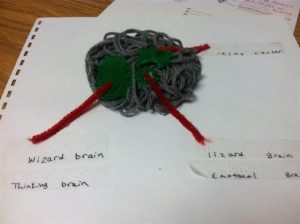
BrainWise adapted to teach students who are blind.
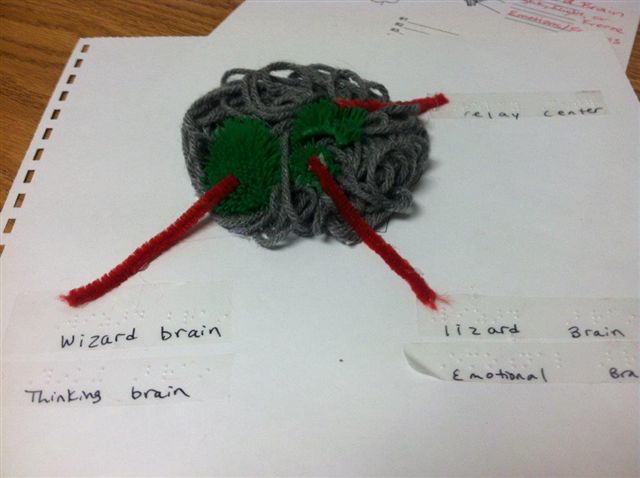
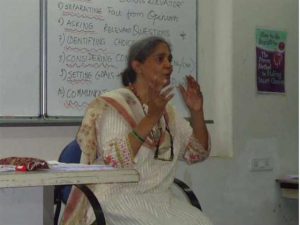
BrainWise used in expanded sites in India.
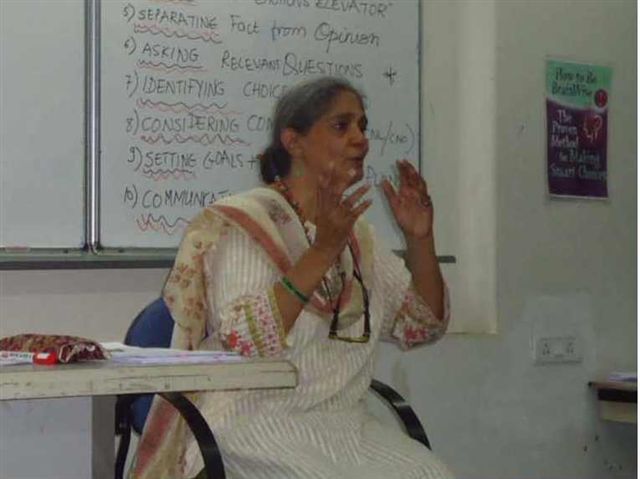
BrainWise introduced as a prevention program for Navajo children and teens.

A public-school district's Social and Emotional Learning program purchases curricula for 230 teachers throughout the district.

The collaboration between BrainWise and True Colors celebrates its 4th year as a core program for the RYLA Plus curriculum, causing Rotary clubs to express interest in adding RYLA Plus to their youth leadership venues.
BrainWise works with a film maker, who completed a documentary on the Columbine shooting. The documentary included information about programs that have been identified as being helpful to parents, and BrainWise was highlighted as such a program. The documentary “American Tragedy” won an award for Best Documentary at the Boston Film Festival.
BrainWise conducts its 3rd training with the Kodiak Area Native Association a tribal organization that provides health and social services to the Koniak region of Alaska.
After the approval of a federal grant, work is started on a project with a research psychiatrist from the Los Angeles Veterans Administration Center, compiling information on specific problems and developing specialized scenarios to be used in the teaching of the program with homeless veterans.
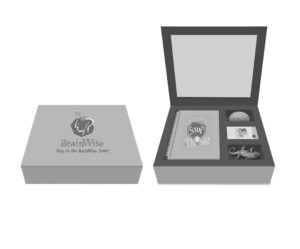
Work on the development of a BrainWise Parent Manual is begun.
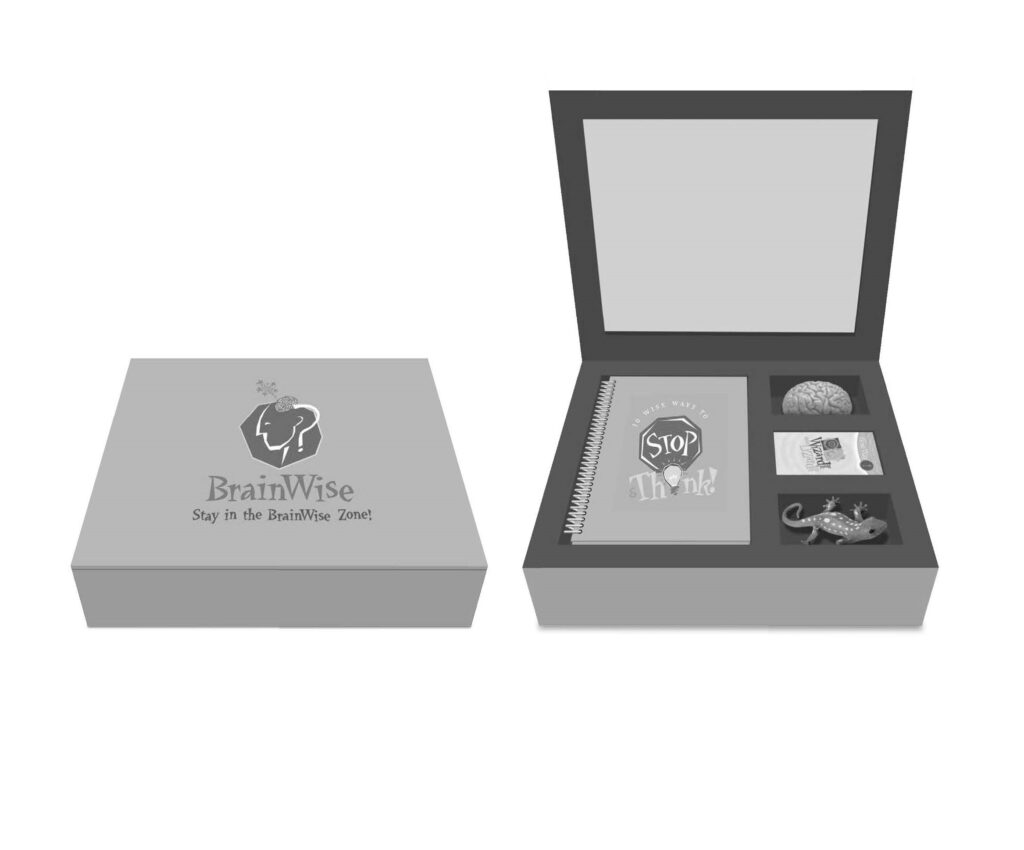
Work continues on the Veterans Administration Project, which started in 2018. A specialized "veterans," curriculum with worksheets and the activities mainly geared toward the population of homeless veterans is completed and preparation to teach this curriculum in a controlled setting begins.
Work begins on creating a BrainWise “Knowledge Library” to house all the research and materials that have been generated over the years.
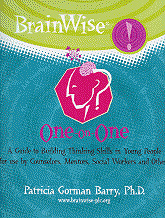
BrainWise One-on-One is developed. Working in conjunction with the Piton Foundation, the program was adapted for use by adults and was successfully used in a number of locations and situations, including private companies, welfare-to-work agencies, low-income housing projects and in drug and alcohol treatment programs

BrainWise taught to youth on probation
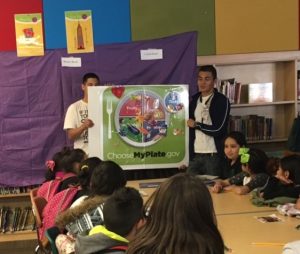
BrainWise introduced into a counseling center for Hispanic teens
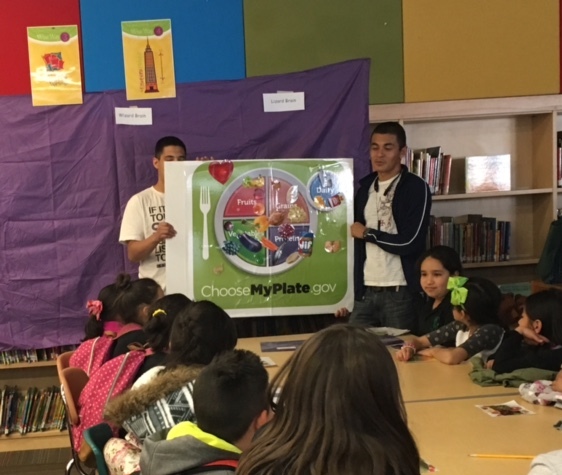
BrainWise credited for drop in teen pregnancy rate in Montrose, CO. Montrose County's birth rate has fallen from 35.8 babies for every 1,000 women between the ages of 14 and 19 to 22.5 babies per every 1,000 teens even though the number of people moving to Montrose County has increased.
BrainWise used as a Pilot Program at Casa Hogar "Mama Paulita" in Mexico. The Mama Paulita Home for Children is an orphanage of 40 children from ages 4 to 16. The director of the home learned about the BrainWise program on a trip to Denver and requested to use the program at their school.
BrainWise and Rotary to teach BrainWise to youth and adults in U.S., India, Malaysia, Singapore, Mexico, Africa, and Canada.
Service to Science Award This award is supported by the Department of Health and Human Services (DHHS), Substance Abuse and Mental Health Services Administration (SAMHSA), Center for Substance Abuse Preventions (CSAP) “Service to Science Initiative.” The award is for Pilot Evaluating Capacity-Building for Evidence-Based Interventions. The award was given through a nationwide competitive process. BrainWise was identified as an evidence-based intervention worthy of funds for additional research that would help evaluate its evidence, so it can be listed on the national Registry of Effective Programs and Practices.
BrainWise brought to families living in homeless shelter, to women on probation and to male and female offenders in jails and prisons.
BrainWise taught to youth with developmental disabilities, to low-income and TANF families.
Children with FASD learn BrainWise.
BrainWise is used at RYLA Plus leadership camp for teens with physical disabilities
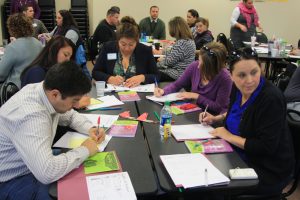
BrainWise brought to school districts and youth programs in Canada
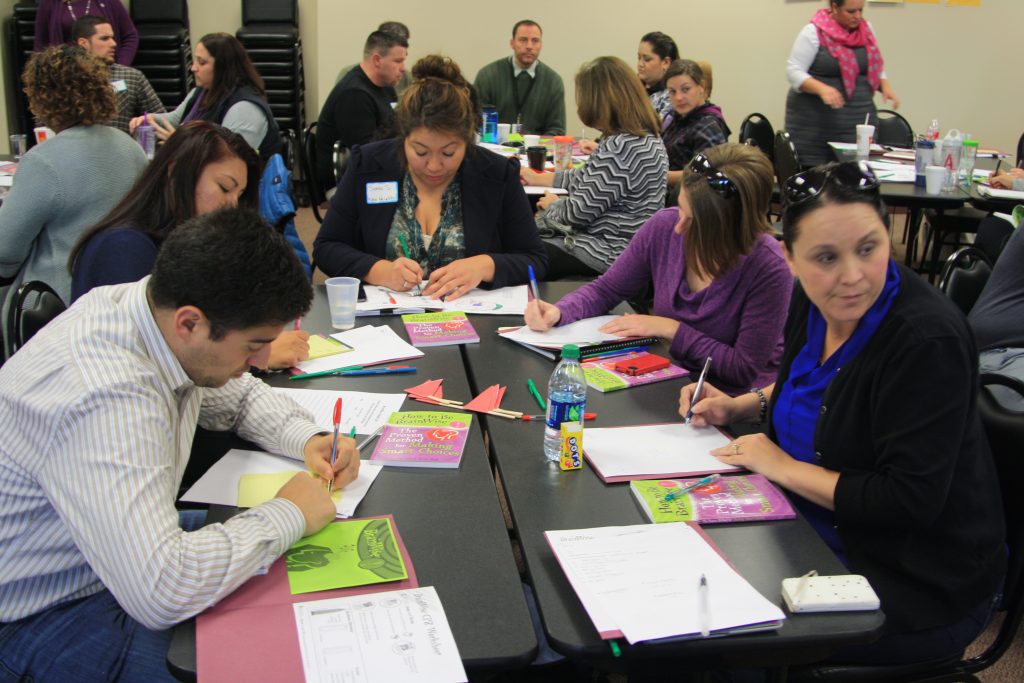
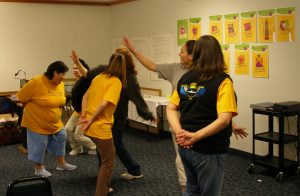
BrainWise listed on Indian Health Services Registry of programs for Native Americans and Alaska Natives.
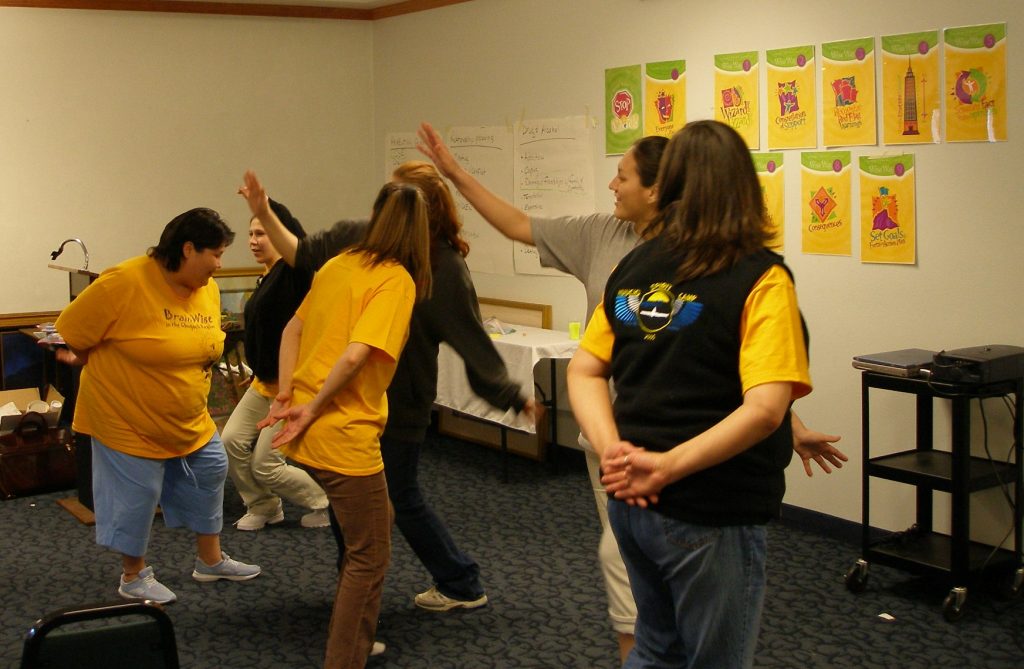
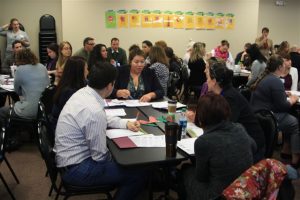
BrainWise is taught to K-12 youth enrolled in online schools.
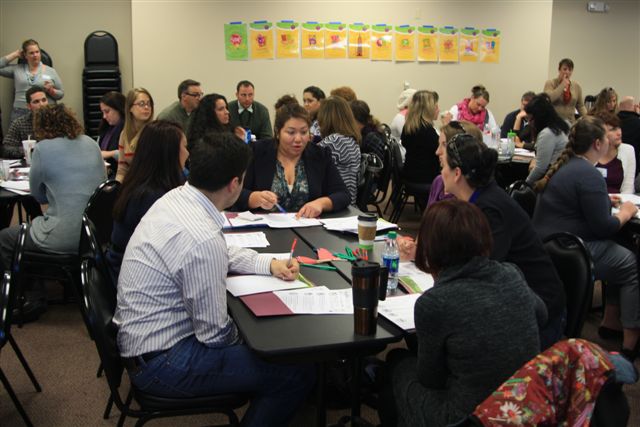
BrainWise used as foundation for Alaska Native teen drug and suicide prevention program.
A day-long BrainWise Instructor Training is held in Denver, preparing individuals to teach the BrainWise curriculum to children, teens, adults in classrooms or one-on-one.
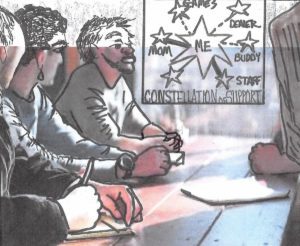
A psychiatrist working with homeless Veterans at the VA Greater Los Angeles Healthcare System reads the published article on BrainWise and homeless men and contacts BrainWise. Efforts begin on writing a grant to conduct a pilot program that would teach BrainWise to unsheltered veterans.
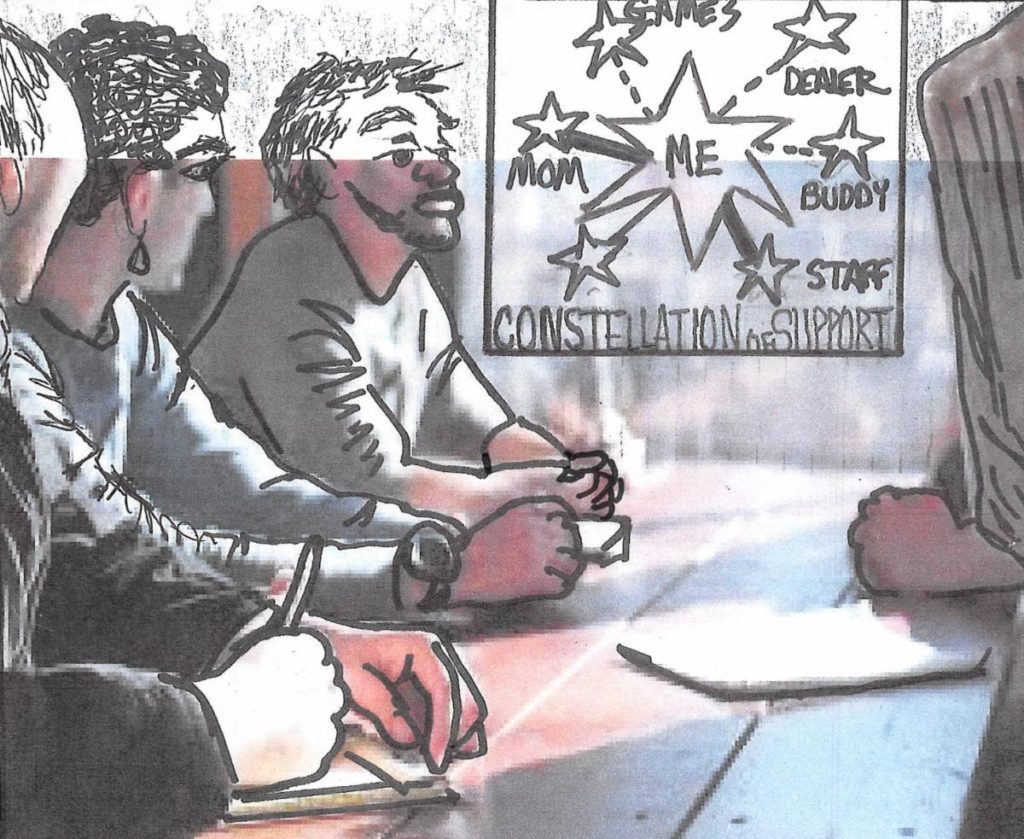
Dr. Barry and Dr. Marilyn Welsh receive an invitation to submit a chapter for a new book on Inhibitory Control.
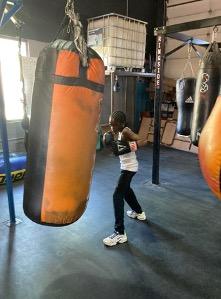
BrainWise is recruited to be part of the National Police Activities League’s program on youth intervention, participating in a webinar introducing the BrainWise program, as well as other intervention programs, to representatives of the 180 NPAL chapters across the US.

A BrainWise Master Trainer presents at the National Police Athletic League national conference, adding 19 local chapters to those who have purchased the BrainWise NPAL package.
An application to fund a campaign supporting BrainWise search ads was approved and planning for the ad campaign begins.
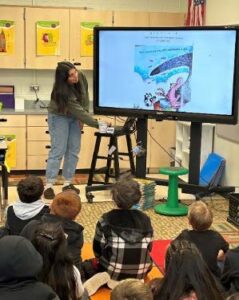
A Rotary project connecting teen readers with elementary school classes starts. The teens use stories to help teach the basics of BrainWise, reinforcing them through games such as Jeopardy and “Kahoots”.
